In memoriam Monica Lovinescu
In memoriam Monica Lovinescu
"Viaţa politică a trupurilor moarte"
More..."Viaţa politică a trupurilor moarte"
More...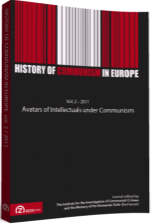
Keywords: Monica Lovinescu; Securitate; anti-communist resistance; exile
Starting with 1962, Monica Lovinescu became, for hundreds of thousands of Romanians, the voice of unbound freedom as editor with Radio Free Europe. Her well-known broadcasts, Theses and Antitheses in Paris and The Romanian Cultural Bulletin, revealed the true face of communist Romania while openly discussing the fate of literature, art, music or politics under dictatorship. Monica Lovinescu’s well-grounded opinions and her determination never to compromise made her a living example of moral integrity, which exiled and non-exiled Romanians constantly referred to. Th e impact of Monica Lovinescu’s live transmissions forced the Romanian Securitate to initiate and develop deftly devised plans to marginalize, belittle or even “neutralise” the rebellious “element”. Lovinescu’s refusal to collaborate with the communist authorities was followed by hostile press campaigns, close surveillance by the Securitate officers and informants and, last but not least, an act of violent physical aggression against her in November 1977. Monica Lovinescu’s opposition to the communist regime continued, irrespective of the Securitate’s opening or closing her fi le. Th e Romanian Revolution of 1989 marked the beginning of a new stage in Lovinescu’s career. She spoke as openly about the need for lustration and in favour of democratic values. Her unparalleled contribution to the cause of freedom needs to be properly assessed.
More...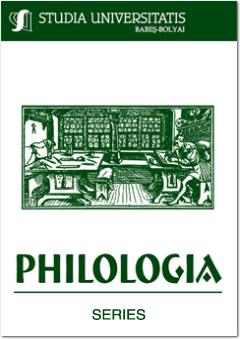
Keywords: Monica Lovinescu; criticism; literary history; tradition; literary field; communism; aesthetical criterion; ethic value.
Troubled Heritage. Monica Lovinescu and the Aesthetical Tradition in Romanian Literary Historiography. This paper briefly analyzes Monica Lovinescu’s literary criticism in the context of the Romanian critical and historiographical tradition represented by such personalities as E. Lovinescu and G. Călinescu. It looks into some of her position takings regarding the configuration of the literary field and the status of the aesthetical criterion in the Romanian criticism of the 1960s- late 1980s. The analysis concludes with the foregrounding of the ethical principle, emphasized by the Romanian critic in exile as an essential requirement for a writer working in a totalitarian regime.
More...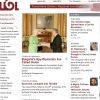
Keywords: Uzbek President Islam Karimov; EU; grant; Nadejda Atayeva; UNESCO; EU; Republican Center for Social Adaptation of Children; Central Asia;
The EU has given a 3.7 million Euro grant to one of Uzbekistan's GONGOs, but has it put necessary precautions into place to ensure the money is spent properly?
More...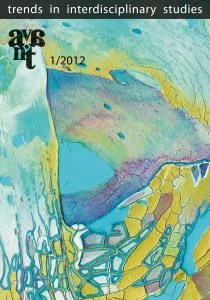
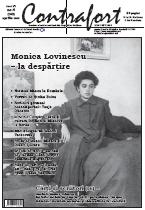
“Cultura română este în doliu. Duminică, 20 aprilie 2008, la Paris, după o lungă suferinţă, a încetat din viaţă Monica Lovinescu. Ne-am obişnuit să omagiem exemplara-i devoţiune pentru cultura română, dovedită în cei mai negri ani ai comunismului şi în confuza epocă postdecembristă, când a fost atâta nevoie de prezenţa, tonică şi lucidă, a Monicăi Lovinescu – un scriitor uriaş şi o voce a conştiinţei morale, care a salvat criteriile de demnitate în cultura română sub dictatură. A vorbi la timpul trecut despre domnia sa aduce ceva defi nitiv şi sfâşietor în raporturile noastre cu acest personaj de legendă al literaturii române. S-au spus şi s-au scris multe în aceste zile despre Monica Lovinescu. ”[…]
More...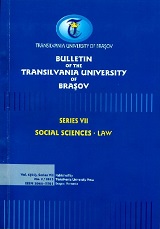
Keywords: star system; written media, entertainment; content analysis
Based on the infotainment as theoretical framework, we have conducted a quantitative study regarding the Monica Gabor/ Columbeanu’s image promoted by two newspapers, this subject being not yet present in the attention of the researchers. The research aimed at identifying a set of themes, but also a pattern of the articles that discuss Romania's star system, too. We also noted that this subject was an increasingly larger concern of the two newspapers, if we consider the number of articles published between July 2005 - July 2011, the Monica construct being produced in several pages of the two analyzed newspapers. Through content analysis, we demonstrated that the production of statistical results contributes, substantially, to the understanding of a seemingly disparate information amount. So, the fast development of Monica’s notoriety was due, first, to display herself with the most influential man of Romanian showbiz. It reveals, thus, one of the mechanisms by which Monica Gabor/ Columbeanu became a famous star in Romania.
More...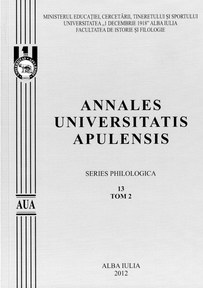
Keywords: Monica Lovinescu; totalitarianism; exile; cultural resistance; chronics; communism
[Monica Lovinescu between the Initial Criticism Domain and the Issue of Totalitarianism] Culture represents the substance and the space of confrontation between the disclosed allocution and the propaganda of the communist regime. For more than three decades, behind the microphone of the Free Europe radio, Monica Lovinescu points to the Romanian society dominant thinking and develops the reader’s horizon of expectation. The totalitarianism controls and filters the broadcasted information in order to obtain an efficient political and ideological propaganda. Consequently, the media is clamed by both sides, because it is extremely important in the society’s political and cultural mechanism. In a democratic system, the politicians, the media and the public constitute a group submitted to power changes: they do not always know who wins and who looses. The communism strains the media to accept and to promote a certain kind of speech: impersonal, strictly informative and propagandistic. The media impact on the society depends on the suggested image, not necessarily on the real one. In this context, Monica Lovinescu speaks about the reappearing of the Romanian literature after the de-Stalinisation, about the evolution of culture and intellectuality, about the problems of Romania and the Romanians, about the censorship and the Security Service. This paper presents and comments the issue of the European and Romanian spiritual values as seen in Unde scurte (The Short Waves): six tomes that reproduce radio shows recorded between 1961 and 1995. Monica Lovinescu defends the pluralism in Romanian culture and politics, and her essays contribute to the debate on cultural values. She understands the deep nature of the communism and she tries to impose the right to normality, to sustain the truth. Undele scurte (The Short Waves) forms a moral guide with an educational mission. Its purpose is multiple: the rectification of the characters from the social and cultural scene, the improvement of the fight against politics and lack of aesthetics, the strengthening of Romanian culture, even if it is done from another geographical space. The chronics have a certain cruel sincerity that may sometimes appear as mean. This attitude is a sign of originality, of non stereotype thinking. The author does not embrace the ideas of her group if they do not convince or fit her. She denies the form in order to accept the style and she contradicts the mentality and taste of the present. She writes with sincerity what she thinks and lives.
More...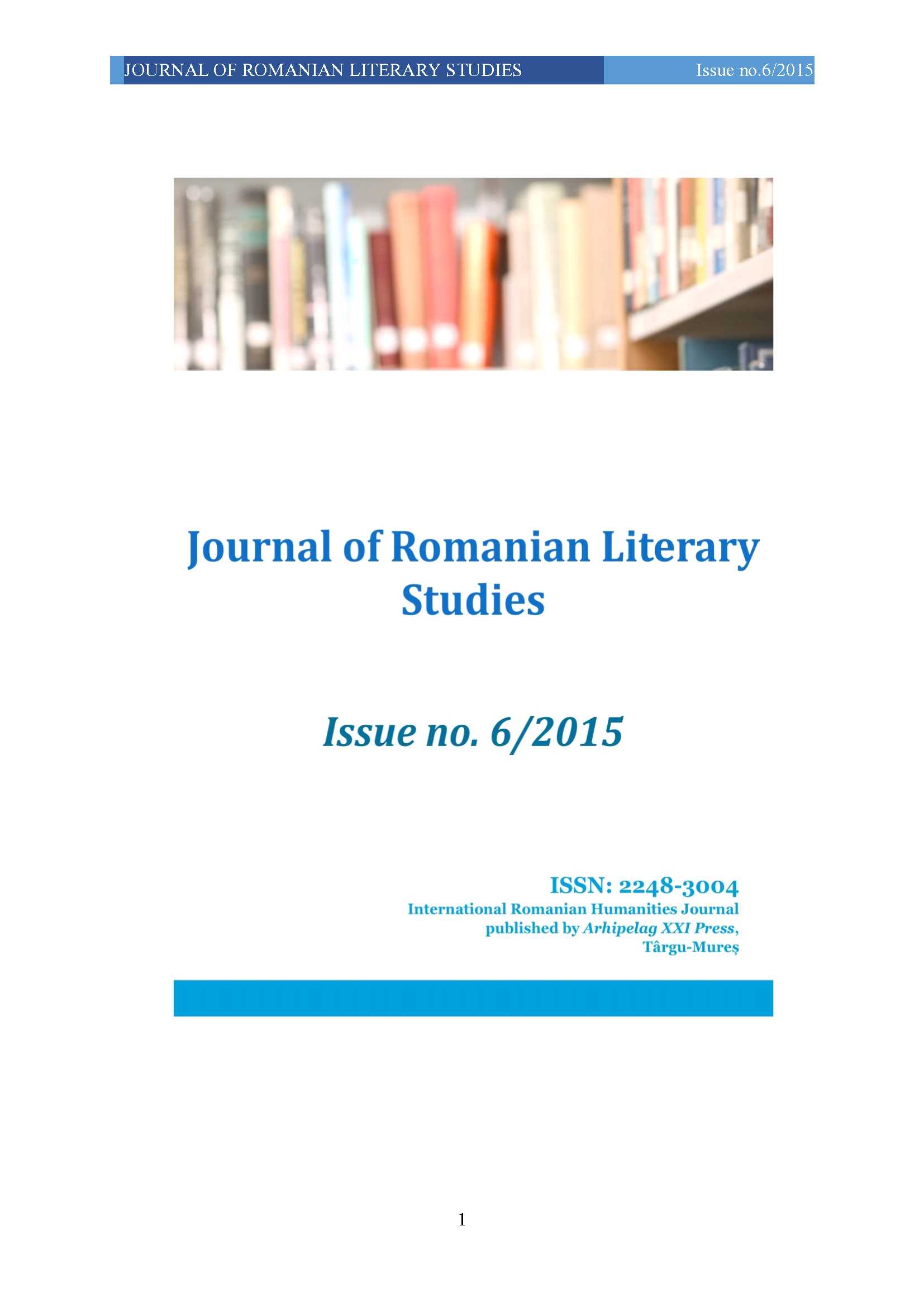
Keywords: the Other; translatability; cross-cultural dialogue; translation; cultural transmissibility
In a world of interconnectedness, the dominant cultural relativistic discourse has placed the concept of the Other at the heart of postmodern culture. Since the aim of mutual understanding is paramount, the only reasonable strategy for knowing the Other is through an un-normative frame of reference. Translatability- the translation of Otherness through mutual cultural mirroring- has become a key concept in cultural studies because it can account for interactions both within and between cultures. It is the condition that allows for genuine cross-cultural dialogue. This paper analyses the issue of translatability and the emergence of cross-cultural dialogue in Monica Ali's novel, Brick Lane (2004).
More...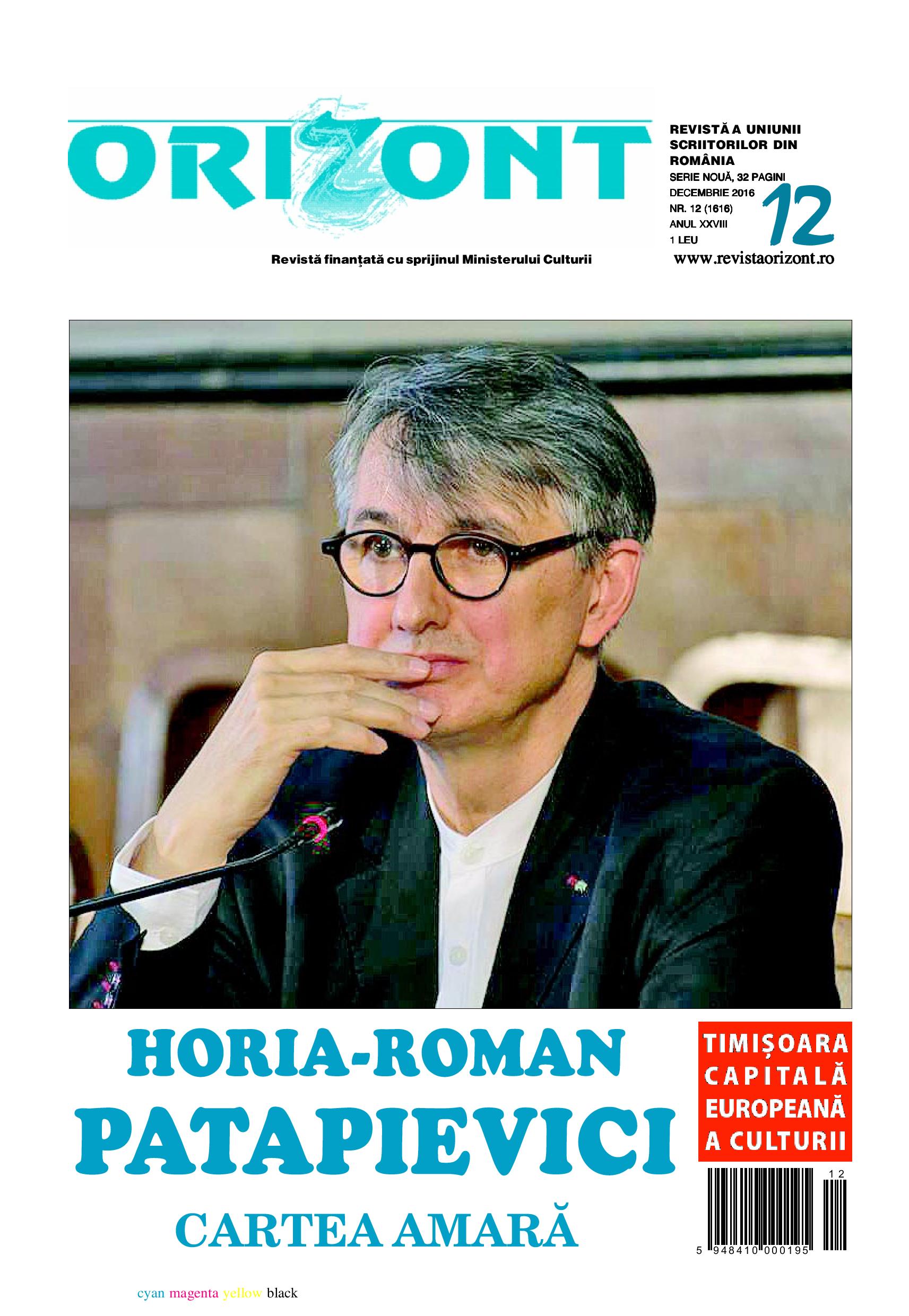
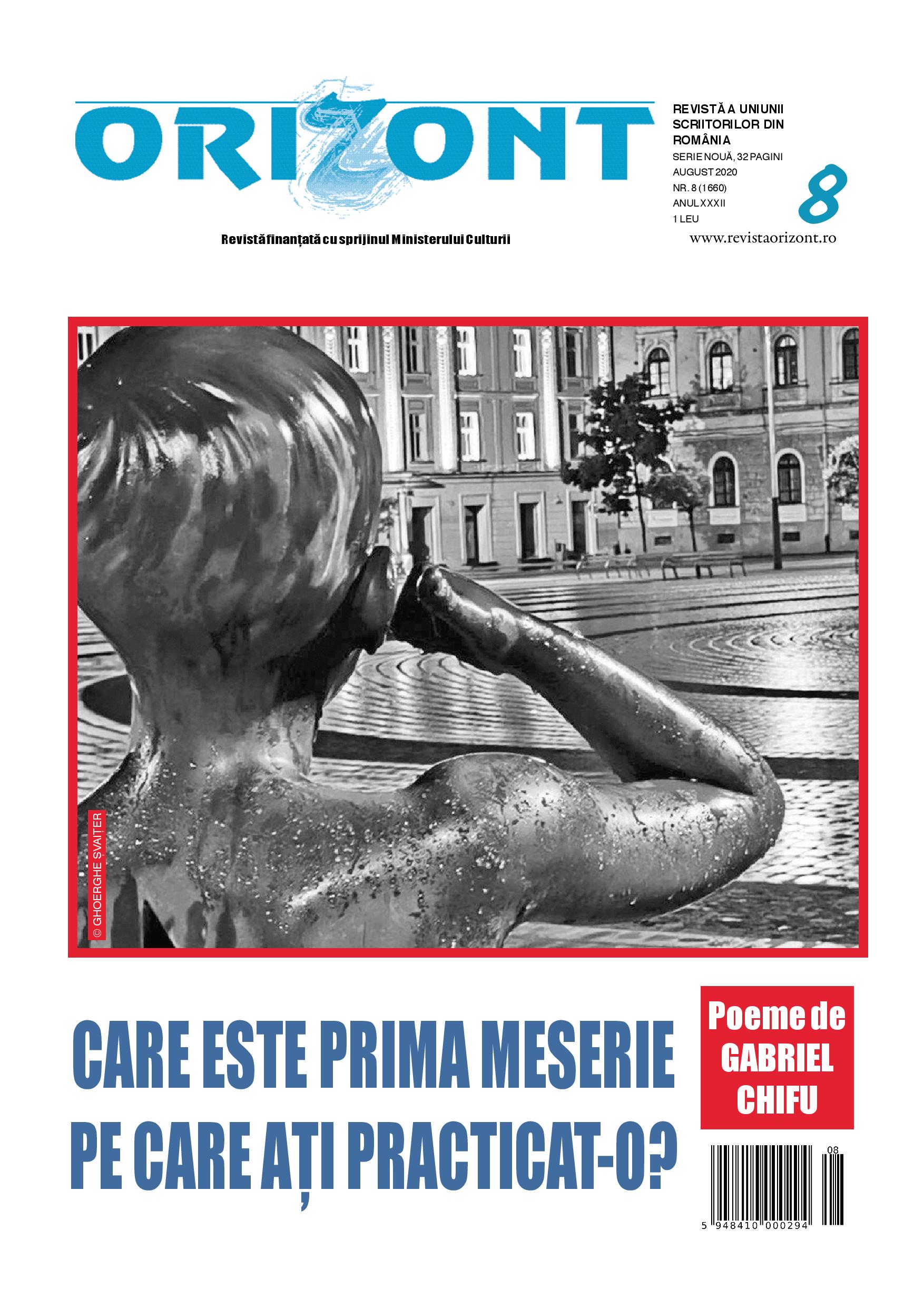
Keywords: lumea globalizată; demagogie;
More...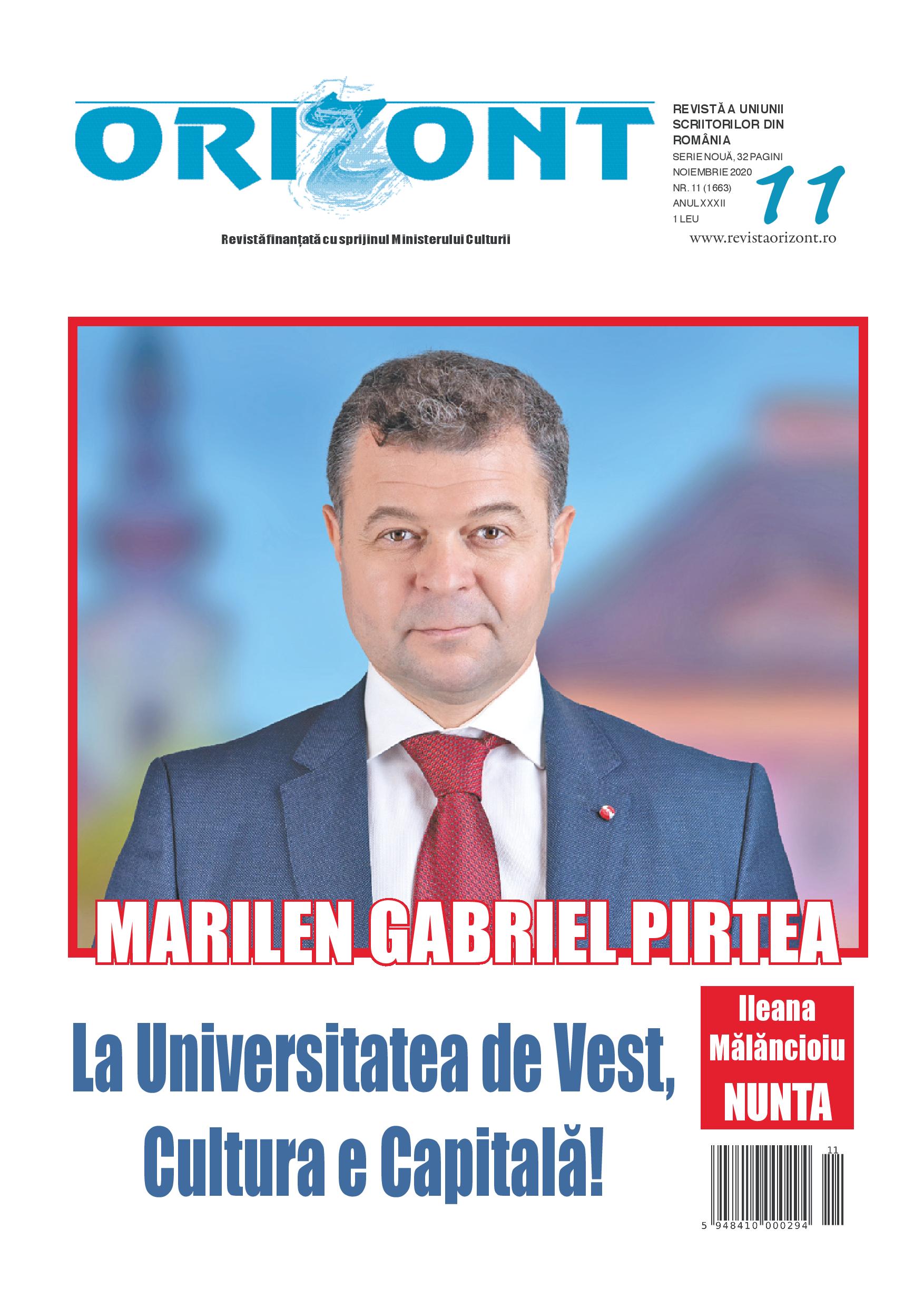
Keywords: pandemie; educație; Monica Lovinescu; rezistență;
More...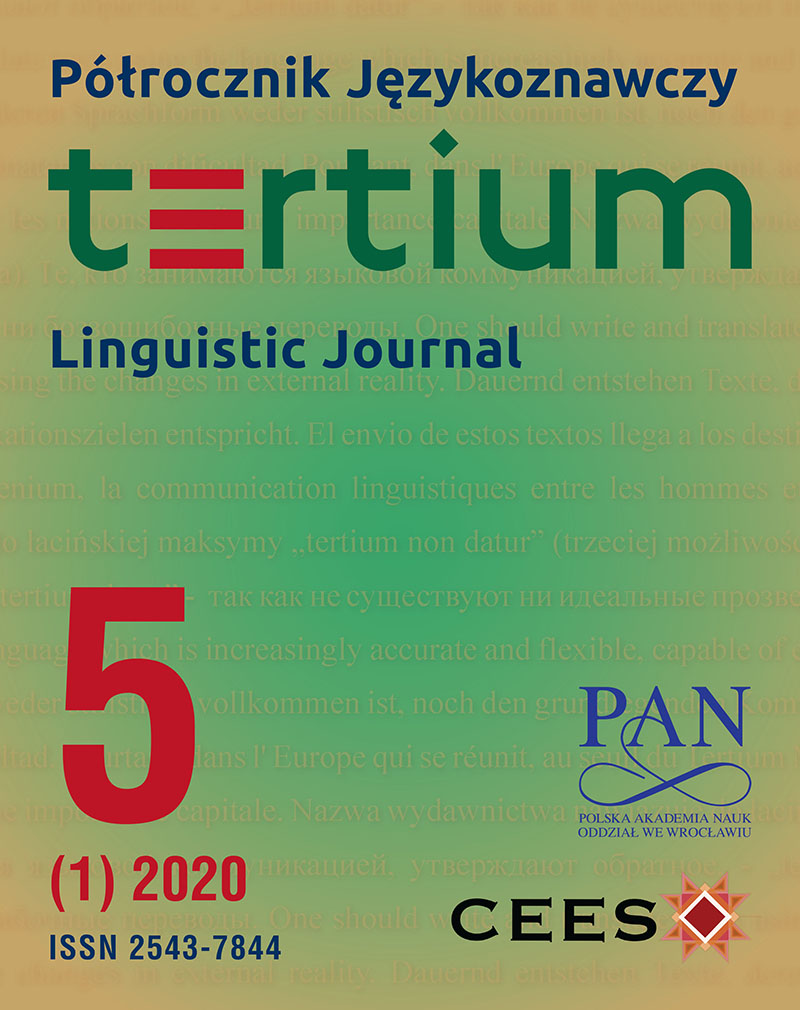
Keywords: food; culinary practices; identity; ethnic ties; Bangladeshi diaspora;Monica Ali;
The primary function of food is to regulate basic body processes and support its functions. However, the role of food is more than just the satisfaction of physiological needs. Food and foodways are important elements of each culture deeply rooted in individual and collective memory. They define specific ethnic groups and mark particular cultures. The aim of this paper is to show multidimensional roles that food plays in the lives of the community and an individual on the example of Brick Lane by Monica Ali. An emphasis is put not only on the psychological, cultural, aesthetic and social functions of food but also on the constructive role of nostalgic food memories. Food and culinary rituals play a crucial role in the protagonist’s life, as they symbolically accompany the process of the identity formation and the personal transformation she undergoes. Jedzenie jako jedna z najbardziej podstawowych potrzeb człowieka służy podtrzymywaniu funkcji życiowych i regulacji podstawowych procesów organizmu. Trzeba jednak pamiętać, że rola jedzenia nie sprowadza się jedynie do wymiaru fizjologicznego. Jest ono bowiem istotnym elementem każdej kultury głęboko zakorzenionym w pamięci indywidualnej i zbiorowej. Tradycje kulinarne definiują grupy etniczne i charakteryzują poszczególne kultury. Celem niniejszego artykułu jest przedstawienie wielowymiarowej roli jedzenia w życiu zbiorowości oraz jednostki na przykładzie powieści Brick Lane autorstwa Moniki Ali. Autorka niniejszego artykułu koncentruje uwagę nie tylko na psychologicznej, kulturowej estetycznej czy społecznej funkcji jedzenia ale także na konstruktywnej roli nostalgicznych wspomnień, które wywołują tradycje kulinarne. Jedzenie i praktyki kulinarne pełnią ważną rolę w życiu głównej bohaterki powieści, bowiem symbolicznie towarzyszą jej w procesie kształtowania tożsamości i osobistej transformacji.
More...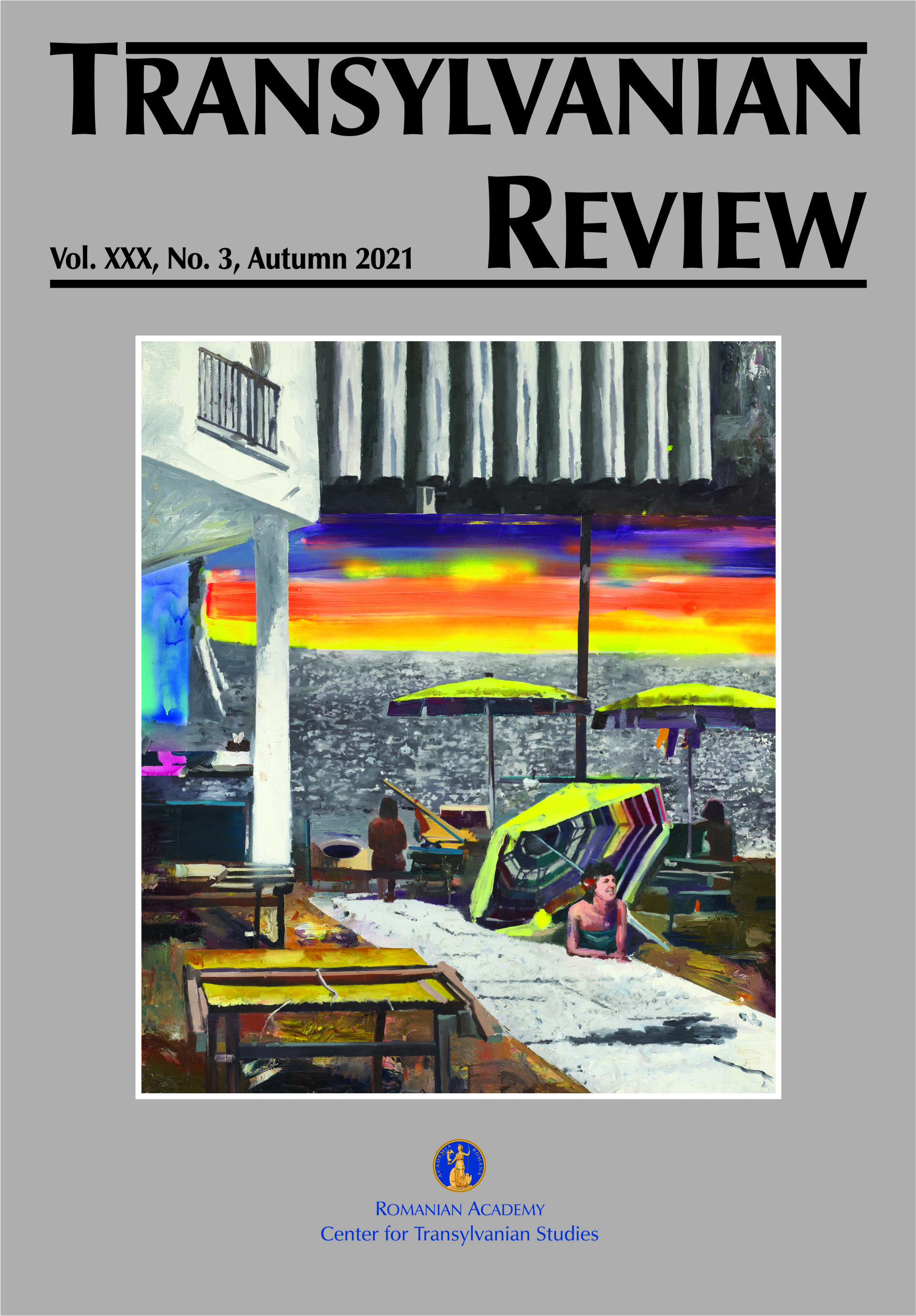
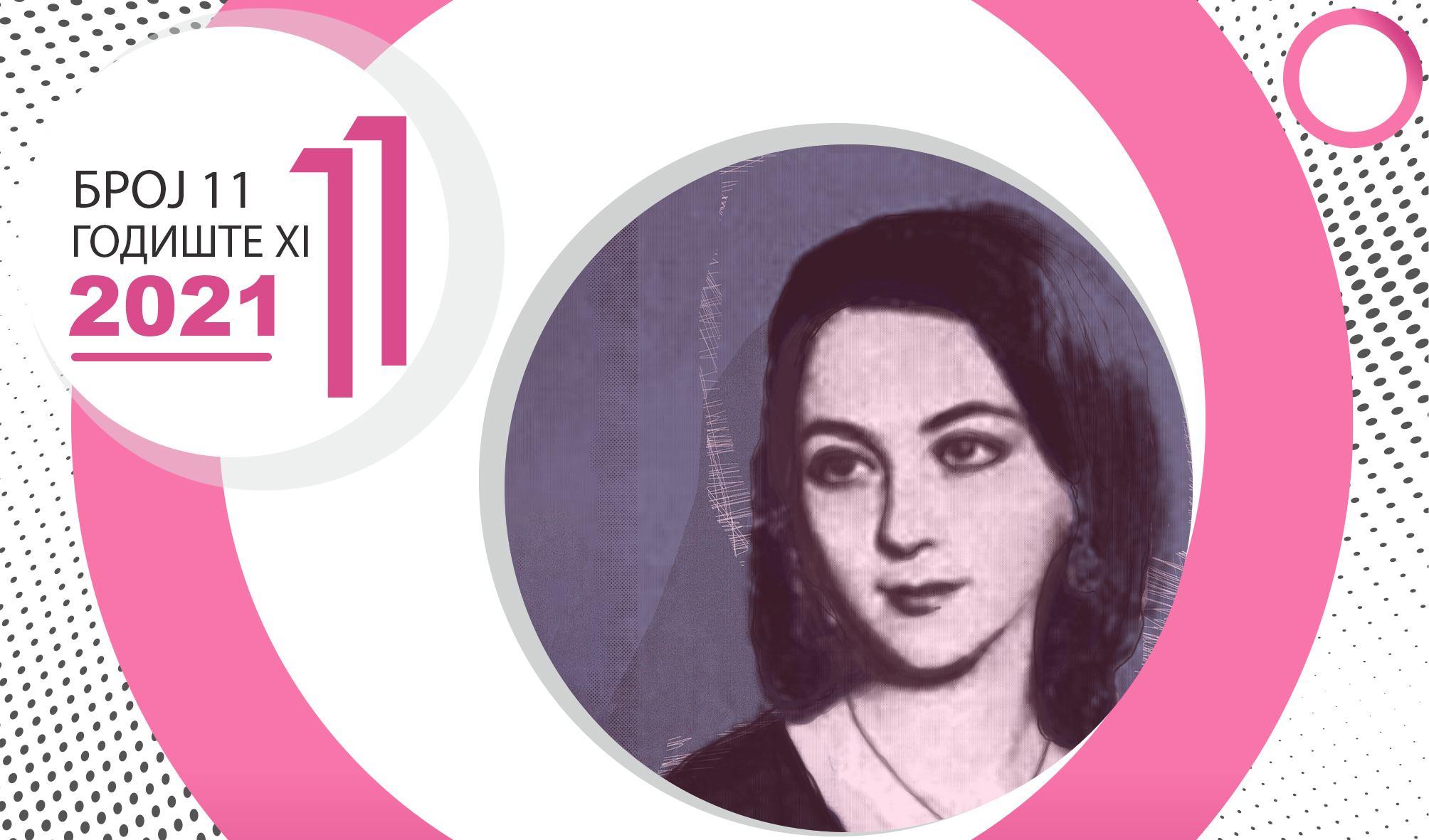
Keywords: Monica Lovinescu; literary criticism; women writers; ethics; literary value;
This paper looks into Romanian critic Monica Lovinescu’s writings in order to identify the criteria she employs for the analysis of Romanian women writers after World War II. Covering mostly fiction and memorialistic literature, Monica Lovinescu played an important role in launching the careers of contemporary women writers, while also revisiting forgotten or marginal texts authored by members of older generations. Her value system brings together aesthetic and ethical frameworks that take into account the larger socio-political context which the writers relate to. Even though the critic’s way of reading is not an explicitly feminist one, her analyses and hermeneutical technique still consider the writer’s gender, especially as she thinks that Romanian women writers were often marginalized by male scholars who dominated the literary field during and after communism.
More...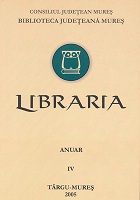
Keywords: Romania; Mureş; Scientists;
Review of: Ana Todea, Fülöp Mária, Monica Avram, Oameni de ştiinţă mureşeni, Târgu-Mureş, 2004, 477 p.
More...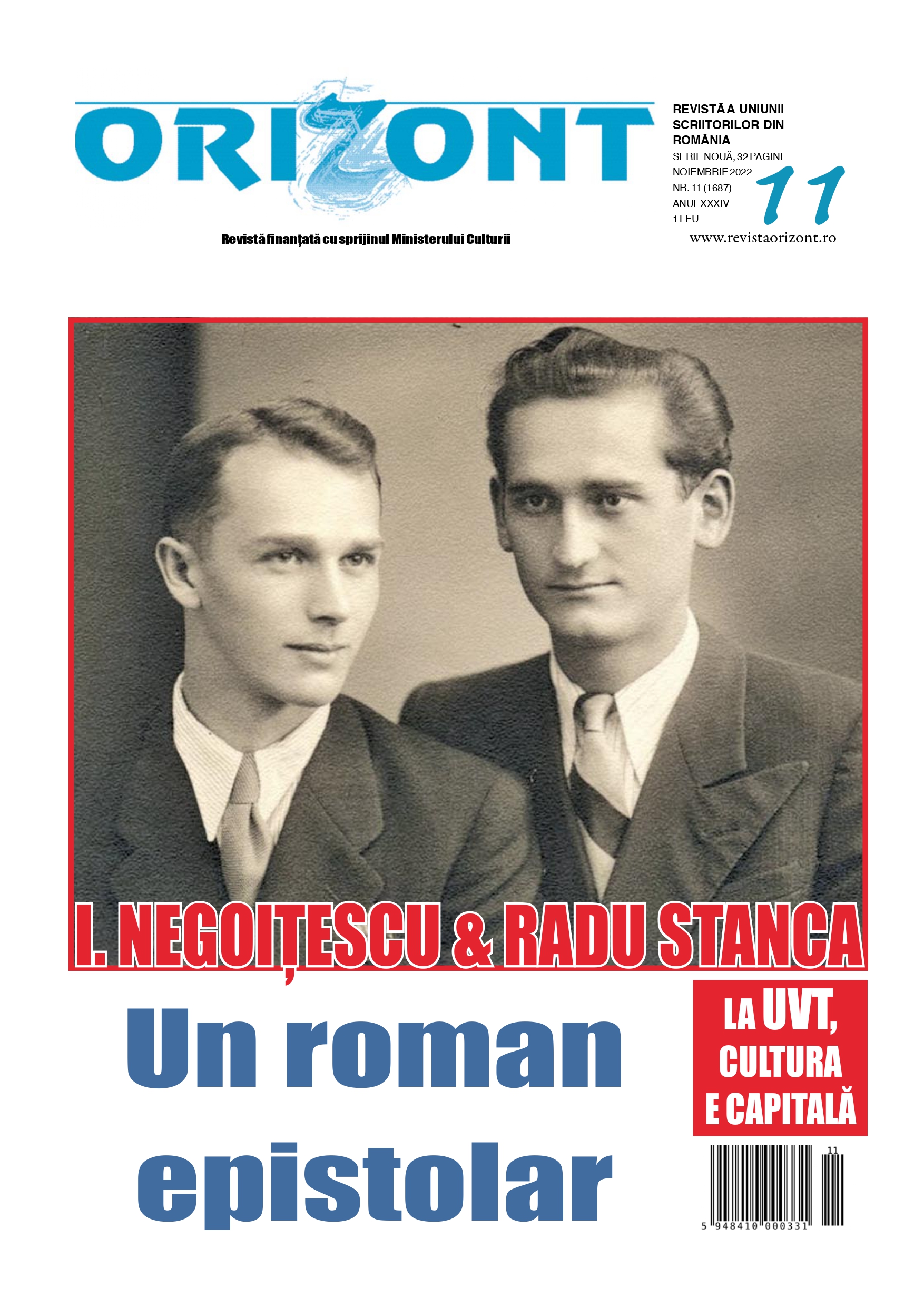
Keywords: Monica Pillat; lyricism;
După debutul din 1970 cu volumul de versuri Corăbii și alte cărți de poeme, publicate în 1981, 1988, 1989, 2005 și 2016, Monica Pillat a revenit în 2019, la editura Baroque Books & Arts, cu o impresionantă antologie lirică 1970 – 2019, intitulată Întredeschideri. Un concept perfect adecvat acestei poetici a transparențelor, diafanului, răsfrângerilor, reveriilor inefabile, cu sensibilitate creștin franciscană, mistic inițiatică și pentru care constelația Jung-Bachelard-Mauron-Durand ar putea oferi cea mai adecvată grilă evaluativă.
More...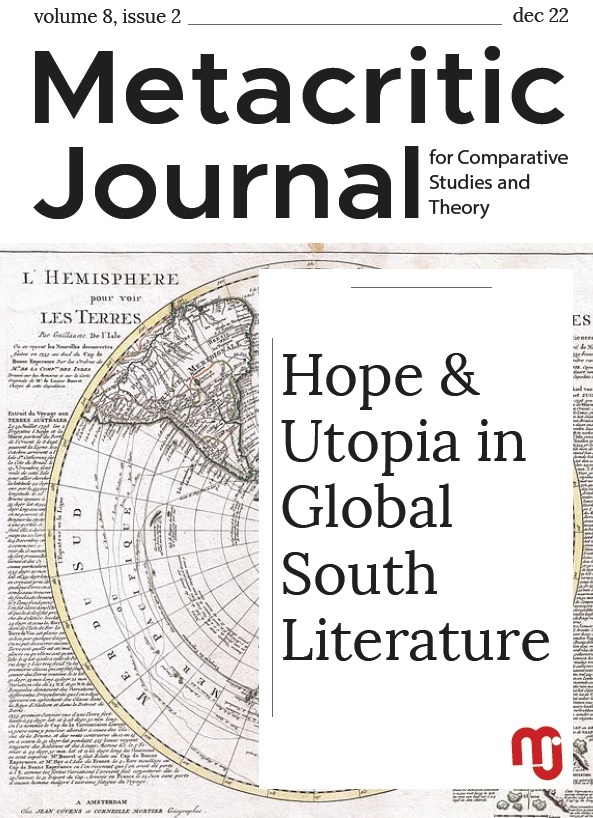
Keywords: review; African literatures; Cold War; Monica Popescu;
Review of: Monica Popescu, At Penpoint: African Literatures, Postcolonial Studies, and the Cold War, Duke University Press, 2020, ISBN 9781478012153, 272 p.
More...